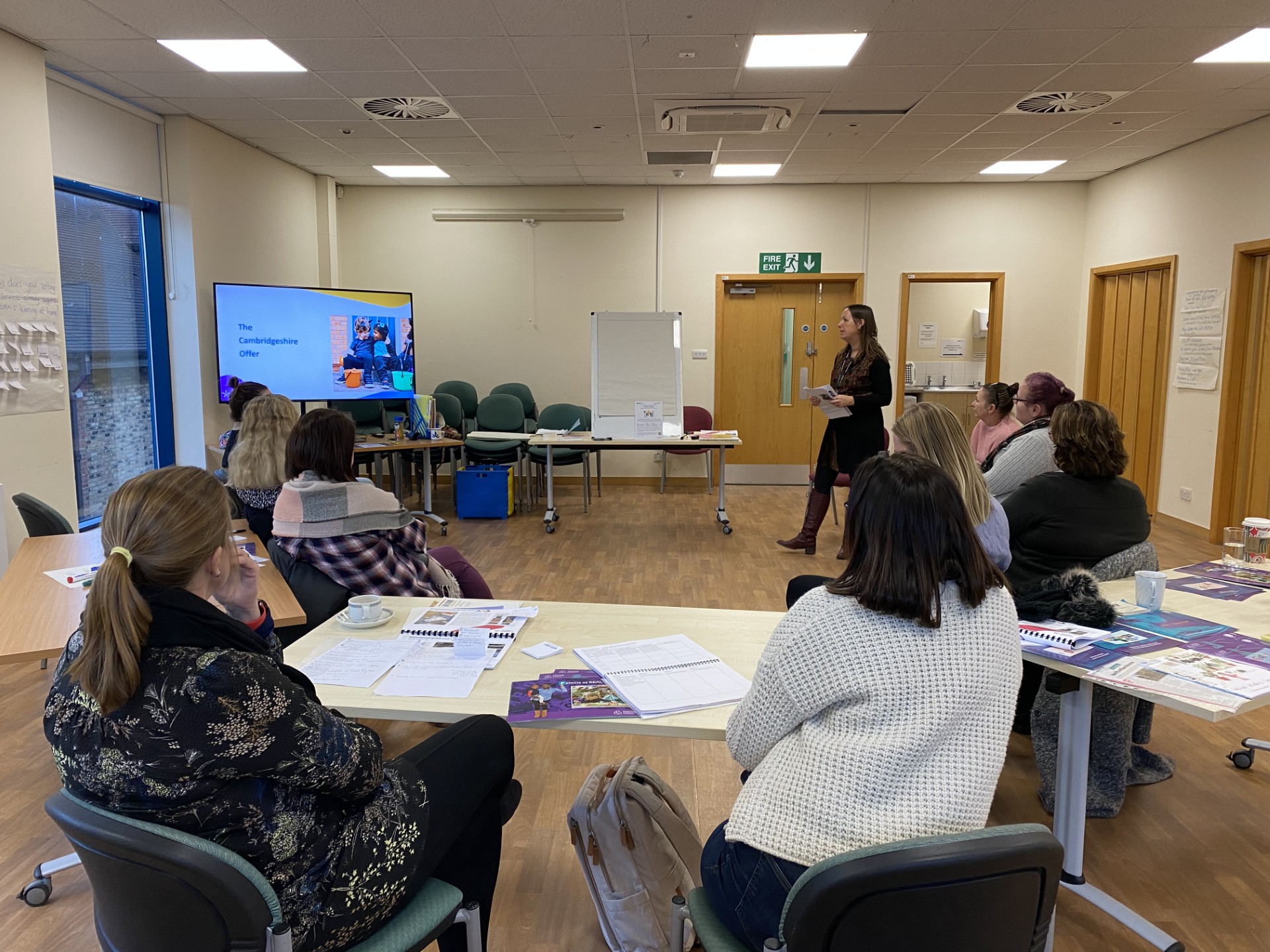Introduction to Making it REAL is a one-day training course that enables practitioners working with families with children aged two to five years, to understand and embed the REAL approach in everyday practice. Participants will learn more about how to work with parents to support young children’s early communication, language, and literacy development through everyday activities in the home learning environment.
The Making it REAL approach is based on the Opportunities, Recognition, Interaction and Modelling (ORIM) framework, which highlights four approaches parents can take to create a home learning environment, that supports children’s early literacy development.
Participants will learn how to support parents to:
- Create opportunities for children’s literacy development by making children’s books and writing materials available and accessible in the home environment
- Recognise and encourage children’s literacy milestones
- Interact with children positively and support real-life literacy tasks and
- Act as models of literacy users, so children see parents use literacy in everyday life.

"The trainers are amazing, cheerful and creative with a vast knowledge and it is a real pleasure to be taking part in." – Playground Assistant.
Audience
This course is aimed at family-facing early years practitioners including childminders, setting practitioners, Child and Family Centre staff, reception-class staff, family-facing library staff, and representatives of community groups who work with families of children aged two to five years old in Cambridgeshire.
Cambridgeshire partners and stakeholders working with families of young children across the county are invited to join this programme through a multi-agency approach.
Objectives
- To learn about an evidence-based approach to early literacy work with families.
- To understand and develop one's practice based on the REAL research and the ORIM framework.
- To understand the REAL approach and find out about existing practices based on the REAL approach.
- To share examples of existing practice with the group and learn from each other.
- To enable reflection on working with parents in a range of environments and to identify the strategies required.
- To identify potential resources, opportunities, challenges and sources of support.
- To help participants feel confident to take the work forward.
- To consider how the impact might be monitored.
Course dates
|
Date |
Time |
Location |
|
Thursday, 24 April 2025 |
9.30 am to 4.30 pm |
Ely Library |
| Wednesday, 14 May 2025 | 7 pm to 9 pm | Online via Teams |
| Wednesday, 21 May 2025 | 7 pm to 9 pm | Online via Teams |
| Wednesday, 28 May 2025 | 7 pm to 9 pm | Online via Teams |
|
Thursday, 8 May 2025, and Thursday, 15 May 2025 |
3.45 pm to 6.45 pm, and 3.45 pm to 6.45 pm |
Sunley House, Papworth Everard |
|
Thursday, 26 June 2025 |
9.30 am to 4.30 pm |
The Grove Primary School, Cambridge |
Booking and reservations for Early Years Workforce Development.
Introduction to Making it REAL Network Meetings
"It has built on my existing knowledge and prompted me to remember things I had forgotten." – CFC Family Support Worker.
Once you have completed the Introduction to Making it REAL (MiR) training, we would like to welcome you to join our free MiR network meetings. These meetings provide opportunities to share ideas, discuss your practice and ask any questions. The meetings take place online three times across the academic year. Please feel free to book one or more.
|
Date |
Time |
Location |
|
Thursday, 3 April 2025 |
4 pm to 5 pm |
Online via Teams |
|
Tuesday, 8 July 2025 |
6.30 pm to 7.30 pm |
Online via Teams |
Booking and reservations for Early Years Workforce Development.

